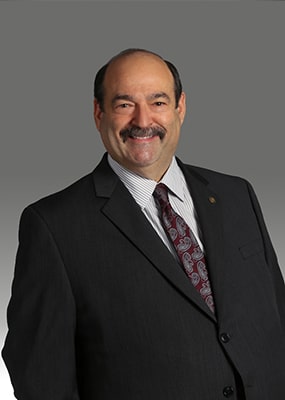
Steve Geller Serves as Panelist at National Gaming Law Conference to Discuss Sports Betting
The National Council of Legislators from Gaming States (NCLGS) held its Summer Meeting at the Westin Copley Place in Boston, Massachusetts in early July 2022. Steven Geller, who is the NCLGS’s General Counsel, was a panelist on the topic of Sports Betting at the conference.
The conversation centered around the Wire Act of 1961, which banned gambling across state lines. Prior to 2011, the U.S. Department of Justice stated that the Wire Act applied to all types of gambling. In 2011, the U.S. Department of Justice reversed their prior opinion, and stated that the Wire Act only applied to sports betting. In 2018, the same body reversed the reversal, and again declared that the Wire Act applied to any form of gambling. In 2020, a federal judge ruled that the more limited 2011 interpretation was correct. In 2021 The 1st Circuit Court of Appeals agreed with the Federal Judge’s ruling that the Wire Act only applied to Sports betting. However, the U.S. Department of Justice has not changed their interpretation that the Wire Act applies to all types of gambling. These confusing rulings and reversals of the Act were debated by the panel during the session, and, most importantly, how the Wire Act applies to Sports Betting.
“In my belief, the current state of sports betting is based more on what people want the law to be, instead of what the law actually is,” said Geller.
“I believe all of these attempts at wireless sports betting seem to violate the Wire Act,” Geller said. “I think [sports betting] should be limited to in-person. Now, do I think Congress should change the law? Absolutely. But until they do, I think we are bound by [the Wire Act].”
Geller said that consideration of limiting sports betting to brick-and-mortar sites might best be looked at for lawmakers in the sense of job creation — with online gambling employing far fewer local residents.
“That is one of the fundamental reasons that people justify [legalization of] gambling,” Geller said.
When the conversation turned to the possibility of a group of states forming a collective in an effort to detect possible match-fixing and to try to prevent money laundering, Geller said he didn’t believe such an agreement would violate federal law, though he conceded that “there is no clear legal answer.”
Geller noted that he was “surprised” that the Biden administration has not upended the Wire Act interpretation of the Trump administration’s Justice Department, which voided the earlier conclusion reached during the Obama era. He added that in the event Trump was elected again in 2024, it’s likely that the broader interpretation of the Wire Act’s restrictions to online gambling would almost certainly remain in place.
“For the most part, gambling has been left to the states — which is where it belongs,” Geller said. The panel concluded that without congressional intervention, the “current and rather ambiguous status quo seems likely to remain a reality for the entire online gaming industry, at least in the near future.”

Steve Geller is of counsel at the firm and concentrates his practice in the areas of land use and zoning, administrative law, lobbying, and gaming, representing local, state, and national clients. Learn more about Steve here.
When you subscribe to the blog, we will send you an e-mail when there are new updates on the site so you wouldn't miss them.

Sachs Sax Caplan, P.L. is proud to be recognized by The Florida Bar for our commitment to hiring and developing Board Certified Attorneys.

